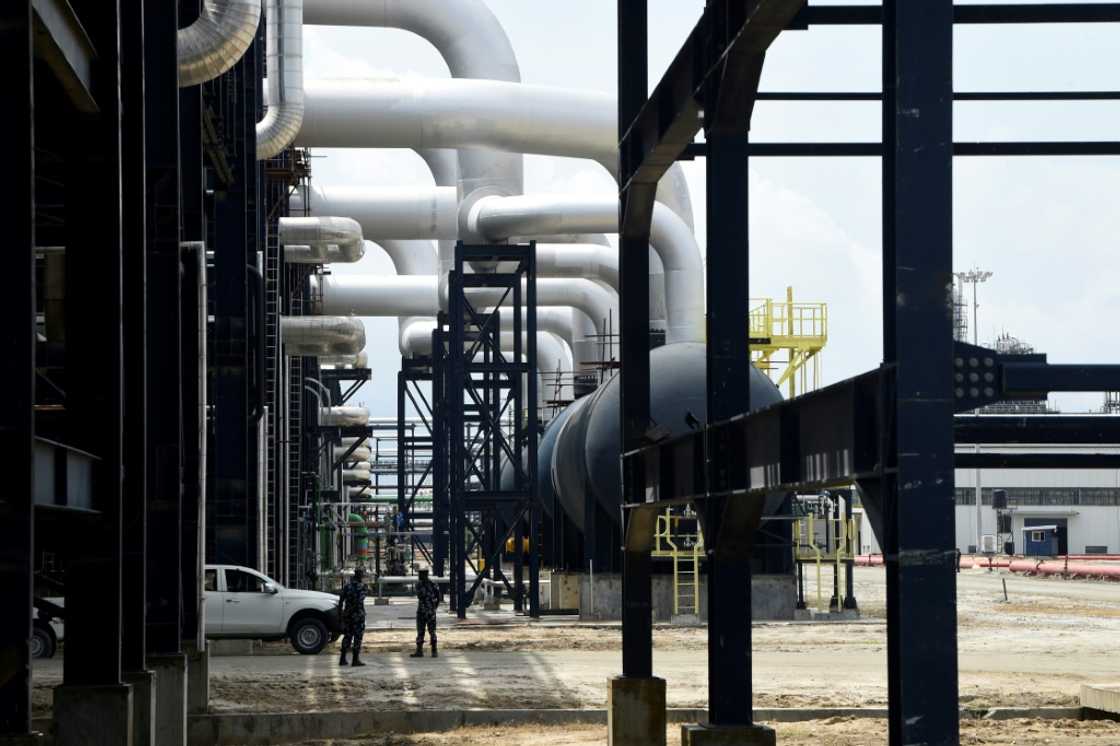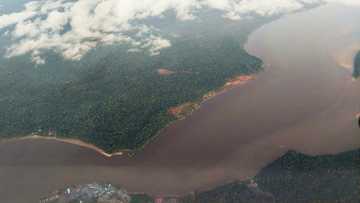Nigeria loads first crude at huge new Dangote refinery

Source: AFP
Nigeria's huge oil refinery built by Africa's richest man Aliko Dangote received its first crude deliveries, the company said on Saturday, in the latest step to starting up the delayed megaproject.
Billed as Africa's largest of its type, the 650,000 barrel-per-day Dangote refinery could be a game changer for Nigeria's economy when fully operational by helping ending the country's reliance on fuel imports.
Dangote Petroleum Refinery received an initial shipment of one million barrels of crude from Agbami deepwater field and began loading on Friday, the company spokesman said Saturday.
The initial run will be for production of diesel and aviation fuel before moving on to petrol output.
Dangote gave no date for the actual start of refinery production.
Though one of Africa largest oil producers and the continent's top economy, Nigeria relies almost totally on imported fuel and diesel because of a lack of refining capacity.
PAY ATTENTION: Click “See First” under the “Following” tab to see YEN.com.gh News on your News Feed!
Nigeria swaps crude worth billions of dollars for petrol that it had subsidised for years to keep prices cheap for its domestic market.
Fuel imports and subsidies caused a huge drain on foreign exchange when Nigeria was struggling with dwindling oil revenues and foreign currency shortages.
"Dangote Petroleum Refinery can meet 100 per cent of Nigeria’s requirement of all refined products, gasoline, diesel, kerosene, and aviation jet, and also have surplus of each of these products for export," the company said in a statement.
The facility sits on 2,635 hectares (6,500 acres) of land at the Lekki Free Zone on the edge of Lagos city and cost an estimated $19bn, according to local media.
The refinery, first scheduled to open in 2021, was officially inaugurated by then president Muhammadu Buhari earlier this year and was supposed to begin operations in June.
Since coming to office in May, President Bola Ahmed Tinubu has ended the long-standing fuel subsidy and floated the naira currency in economic reforms he says will attract foreign investment and build long term growth.
The former Lagos governor has called on Nigerians to be patient with his reform programme as the initial impact saw fuel prices soar, a sharp fall in the value of the naira and an increase in the cost of living.
New feature: Сheck out news that is picked for YOU ➡️ click on “Recommended for you” and enjoy!
Source: AFP



